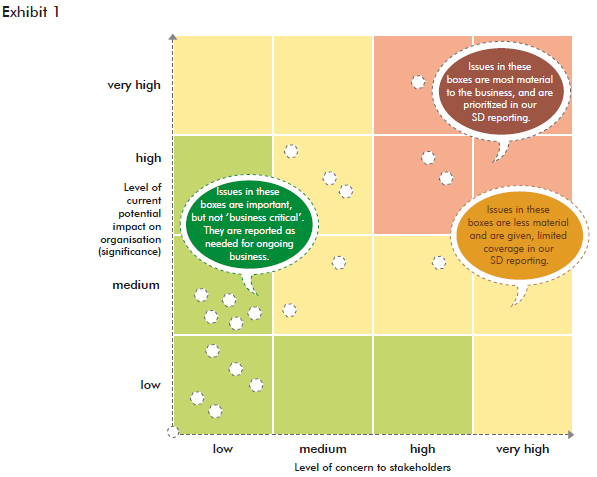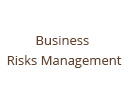Ambuja Cement has a well embedded business
risk management process for identifying risks and
opportunities on corporate as well as operational
levels. The overall objective is to improve
awareness of the Company’s risk exposure and
appropriately manage it. Materiality reviews are
being conducted in conjunction with the annual
business planning cycle.
Risk assessment and management policy support
the sustainable business module for increased
profitability. Our risk management approach
incorporates sustainability and provides
management with useful data for identifying
emerging issues and developing new and better
products and processes that help protect corporate
reputation and improve shareholder value.
Sustainability gives us an opportunity to look at
risks in a broader than a traditional risk
management framework, which is to look beyond
economic, strategic and operational factors and
to include social and environmental considerations.
Sustainability allows corporations to consider
emerging risk areas and to look for opportunities
presented by risks that are overlooked by other
analytical and systems-driven approaches. A more
holistic point of view assures sound financial
management, ethical corporate governance and
transparency with respect to information provided to
employees and other stakeholders profitability.
ACL’S SUSTAINABILITY RISKS/OPPORTUNITIES ASSESSMENT 2013
 |
| Our risk management approach
incorporates sustainability and provides
management with useful data for identifying
emerging issues and developing new and better
products and processes that help protect corporate
reputation and improve shareholder value.
Sustainability gives us an opportunity to look at
risks in a broader than a traditional risk
management framework, which is to look beyond
economic, strategic and operational factors and
to include social and environmental considerations.
Sustainability allows corporations to consider
emerging risk areas and to look for opportunities
presented by risks that are overlooked by other
analytical and systems-driven approaches. A more
holistic point of view assures sound financial
management, ethical corporate governance and
transparency with respect to information provided to
employees and other stakeholders.
Examples of emerging issues of concern in the
sustainability area for our industry include climate
change, social justice, depletion of non-renewable
resources, brand damage (including boycotts),
shareholder actions related to sustainability issues
and disclosure of historic environmental liabilities.
Sustainability Risk Management also requires the
evaluation of many aspects of the entity’s
operations that are not part of most current
corporate programs. |




















